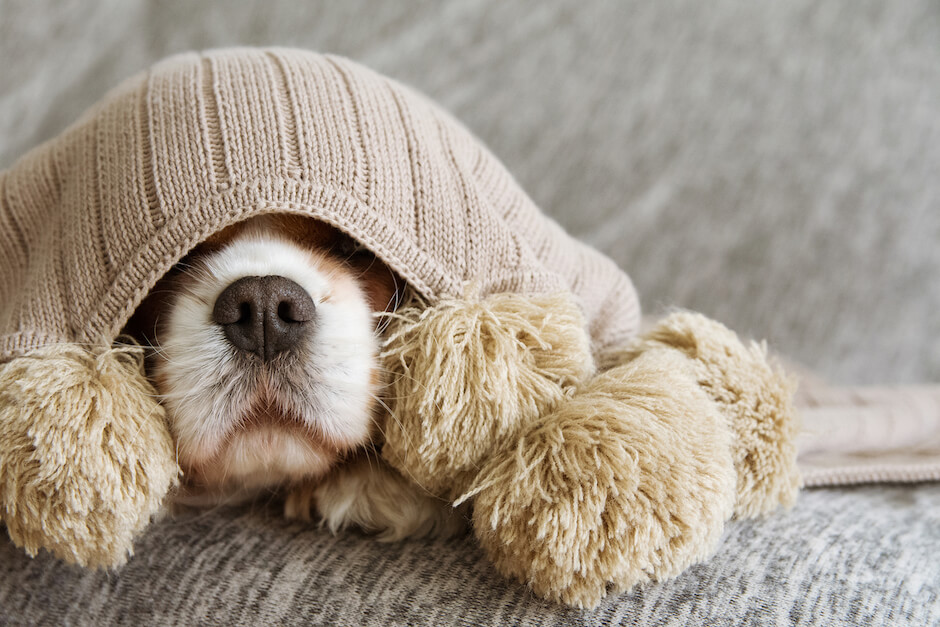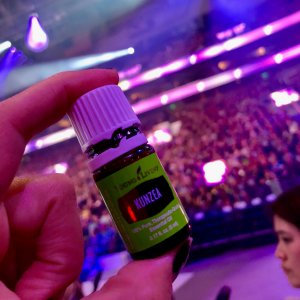For much of America, July 4th includes fireworks as part of the celebration. And for many pet owners, this equates to a stressful evening of fearful, anxious animals. People with otherwise well-behaved dogs often dread this holiday as well as thunderstorms and other fear-evoking occurrences. Understanding the natural fear response in pets can help you find appropriate ways to soothe and calm your pet during times of stress.
Fear, Phobias, and Anxiety
In order to understand and better help your pet, it is important to recognize the difference among fear, phobias, and anxiety.
Fear
Fear is an animal’s natural response to a potential threat. This is an instinctual fight-or-flight response to a perceived or real frightening event or trigger. When an animal becomes frightened by a stimuli, such as a loud firework, the sympathetic nervous system is activated and enters a temporary state of overdrive so they can escape danger. It’s the same biological response they would have in the wild when threatened by a potential predator.

Phobia
When routinely or persistently exposed to a specific fearful situation, an animal may develop a phobia. An animal may exhibit a phobia when it is confronted by, or even just anticipates, a specific trigger. Animals commonly develop phobias to loud noises, but they may develop phobias to unrealistic objects and situations if they experience stress related to them.
Anxiety
When your pet feels their environment is unpredictable, fears and phobias can turn into anxiety. The animal is always anticipating a stressful or scary event, so they are “on edge” much of the time. Animals with anxiety may be jumpy and nervous all of the time and become easily upset by minor changes in routine, noises, and other benign stimuli.
Causes of Fear and Anxiety
- Illness, especially when the animal is in pain, or disability, such as deafness or blindness
- Scary experiences
- Nervous system disorders associated with aging
- Deprivation from social experiences during the first several weeks of life
- History of abandonment, multiple owners, rehoming, or prior neglect
- An overly nervous or anxious owner
When Fear Takes its Toll
Although a fearful or anxious pet may seem like an inconvenience, these behaviors actually affect your furry friend in ways that may be more of a concern. Just as a person with anxiety experiences health effects, long-term stress can be detrimental to your pet’s health.
In fact, a survey of pets with persistent fear and/or phobias showed a markedly shortened life span and increased occurrence of skin disorders. Stressed animals may vomit, have diarrhea, or other digestive upsets. This is because stress has a direct effect on the gastrointestinal tract. Psychological stress can also contribute to weight loss and respiratory issues, according to this study that examined 60 shelter cats.
In addition to the above, the results of long-term stress can include myopathy, fatigue, hypertension, decreased growth rates, and suppressed immune function.
Signs of Fear

Preliminary signs of mild fear in pets include tail-tucking, trembling, whining, restlessness, and hiding. As fears worsen, an animal may become aggressive and have diarrhea or accidents indoors. An anxious animal may experience skin disorders and itching, frequently lick and bite itself, and withdraw from social situations. Anxious dogs tend to bark more often, sometime inexplicably. Animals with separation anxiety often show destructive behavior. Remember, anxious animals are constantly anticipating something bad to happen, so they are on edge all of the time.
Natural Remedies for Animal Fear
How you handle the problem should be specific to the animal, its triggers, and the severity of the issue. If your animal is fearful of fireworks, for example, the approach will differ from an animal who experiences ongoing anxiety.
Provide a safe place
Many animals appreciate a crate, bed, or other area that they know is theirs and where they feel safe. Especially when started close to birth, a special bed or blanket can bring security to a fearful pet. Cats tend to prefer smaller, dark, closed spaces.
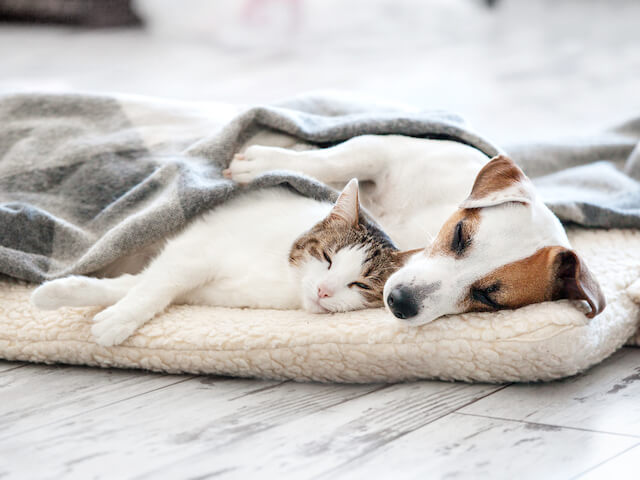
Touch
Sometimes your presence and soothing touch is all that is needed to soothe your animal. As you reassure your pet, be sure you are relaxed and light-hearted. If you feel stressed about your animal’s fear, they will certainly pick up on this.Some pets respond well to weighted jacket that provides deep touch.
Melatonin
Melatonin is a hormone that can help alleviate psychological stress. A 1999 study reports that melatonin alleviated stress in 80% of dogs tested. Plus, it had the added bonus of helping to reduce canine hair loss. A typical dose is around 1 mg per 20 pounds.
Distraction
If your animal is fearful of loud noises, try distracting him or her during thunderstorms. Get out a new toy or ball and play with your animal.
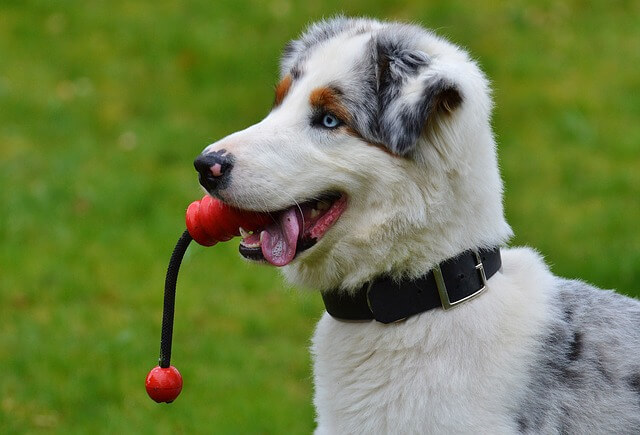
Exercise
Just as for humans, exercise is great medicine for anxious or fearful animals. A physically tired animal is a calmer animal. Prior to those 4th of July fireworks, take your dog on a long walk or spend time in some active play with your cat.
Counter-Conditioning
If your animal is afraid of storms or other loud noises, you may want to try desensitizing them to the phobia. You can play the sounds of fireworks, thunder, or other noises while reassuring your pet with positive experiences like treats or belly rubs.
CBD Oil
Many people are looking to CBD oil to alleviate mild to moderate anxiety and stress. So it is no surprise that veterinarians are catching on as well. CBD may be administered orally or topically to help relieve your furry friend’s stress.
Herbs
Certain calming herbs can help pets just as much as people. Be sure to research specific herbs, as not all natural plants are safe for animals. Some good options include chamomile, valerian, and St. John’s wort. You make these herbs into a tea and pour over your pet’s food.
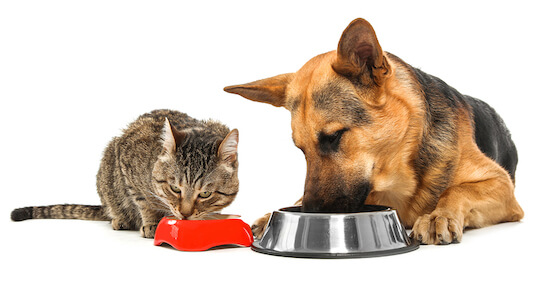
Essential Oils
When using essential oils with your pets, it is important to keep in mind that their sense of smell is much more sensitive than humans’. Begin with a single drop of essential oil on your pet’s blanket or bedding. You may also diffuse near your animal, but be sure the animal can leave the room as desired. Some people apply essential oils topically to pets. Use caution and start with a very small amount. Strong aromas can actually upset animals, thereby increasing anxiety. Dilute the oils or use blends specifically formulated for animals. Click here to learn about specific essential oils for your pets.
How About You?
Have you discovered a great way to soothe your pet’s anxiety or stress? Comment below and share!
Want to learn more?
Check out this post to learn about the Safety of Essential Oils in Pets.
Tuesday, June 24, 2019 I will be hosting a live interactive call to discuss fear in pets. Want to join the call? Come for free!
